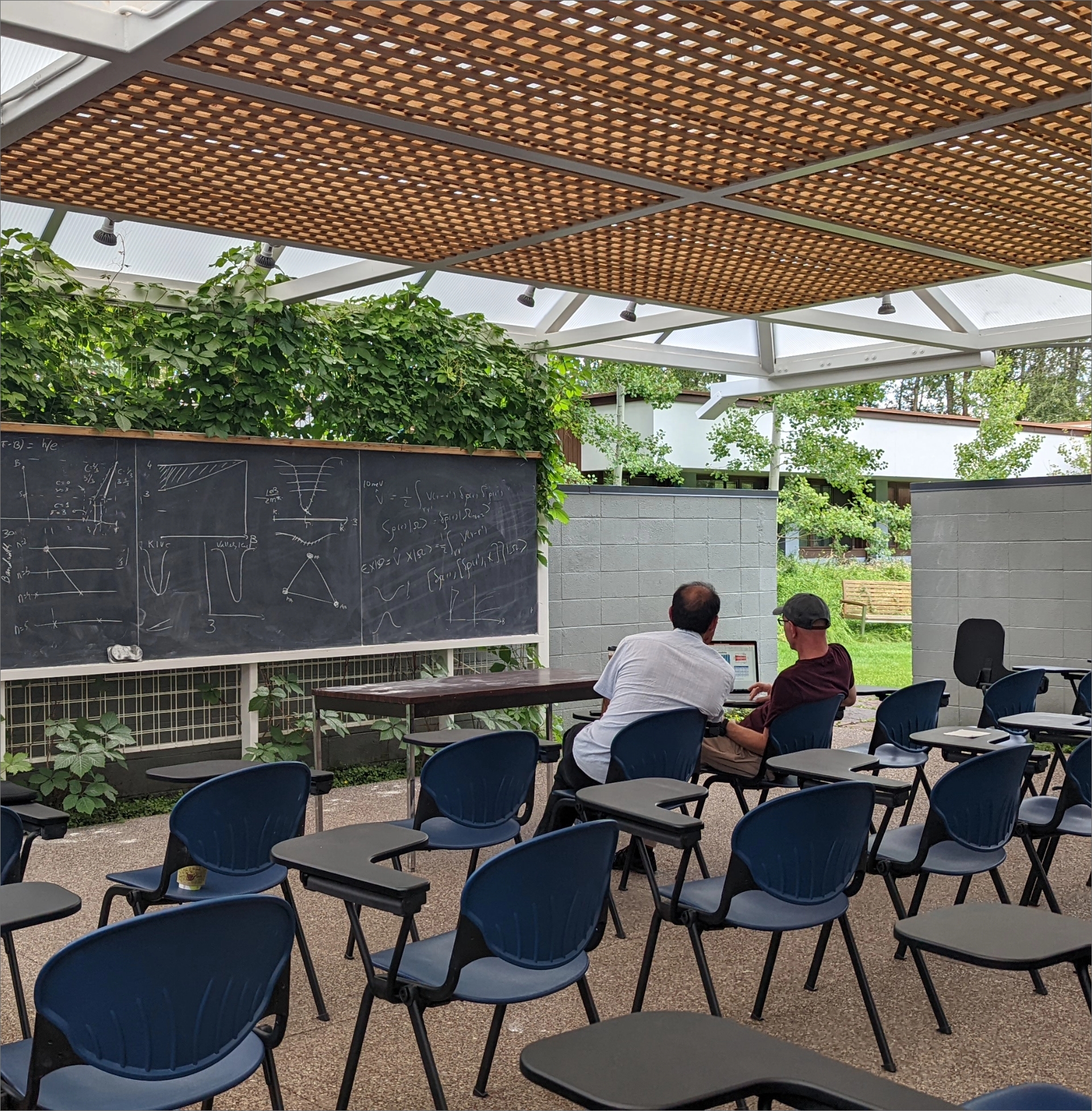
Summer Program
Probing Collective Excitations in Quantum Matter by Transport and Spectroscopy
July 7–August 4, 2024
Organizers:
N. Peter Armitage, Johns Hopkins University
Cristian Batista, University of Tennessee
Johannes Knolle, Technical University of Munich
Natalia Perkins, University of Minnesota
In recent years, significant progress has been made in understanding strongly correlated quantum materials, with a particular focus on topological systems like quantum spin liquids. These achievements in understanding have been made possible by remarkable developments in both materials science and experimental techniques. In particular, improvements in both traditional experimental tools (e.g., inelastic neutron scattering, Raman scattering, resonant X-ray scattering, and ultrasound spectroscopy) and the introduction of innovative techniques such as 2D coherent THz spectroscopy and sophisticated noise experiments have advanced studies of quantum matter to qualitatively new levels of insight. While our theoretical understanding of ground state properties, including their classification, has likewise seen significant improvements, there remains a relative gap in our comprehension of experimentally accessible dynamical response functions. This workshop aims to bridge this gap by fostering theoretical advancements in understanding the dynamics of collective excitations. We will explore novel approaches for computing dynamical response functions in highly entangled systems, providing insights into various spectroscopic techniques, including nonlinear responses. We invite applications from scientists interested in this research and hope that through collaboration we will advance our understanding of complex quantum phenomena and their manifestations in experimental settings.
Summer Workshops
The summer program, running for 16 weeks from late-May to mid-September, emphasizes exciting open problems at the cutting edge. Two or three concurrent workshops, each with a specific focus selected for timeliness and the potential for breakthroughs and of two to five weeks in length, establish the main themes of each week, with twelve or thirteen different workshops each summer, balanced across fields including particle physics, string theory, astrophysics and hard and soft condensed matter physics, as well as emerging areas including biological physics, ultra-cold atom physics, quantum information, and physical mathematics. Additional researchers participate in small working groups or as individual researchers. This framework is designed to maximize informal interactions and free discussion within each area and to promote cross-fertilization between different areas via the common language of theoretical physics. Participation in the summer program of the Aspen Center for Physics is by application and subsequent invitation only. View past workshops.
